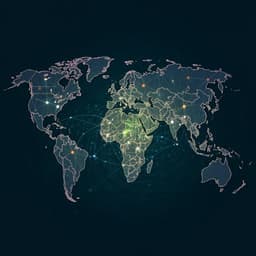
Mathematics
Elitism in mathematics and inequality
H. H. Chang and F. Fu
This groundbreaking research by Ho-Chun Herbert Chang and Feng Fu delves into elitism in mathematics, exploring the profound implications of the Fields Medal on under-represented mathematicians. Discover how network analysis reveals the movement of elite mathematicians globally and exposes the ongoing disparities among different lingo-ethnic identities.
Playback language: English
Related Publications
Explore these studies to deepen your understanding of the subject.







